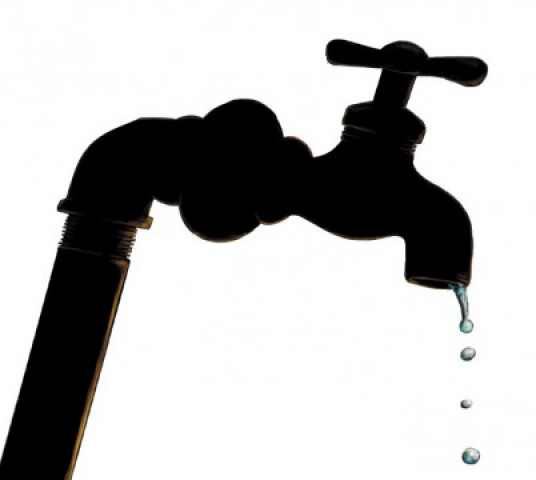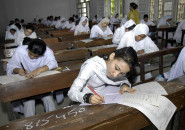Not a drop: Potable water still a dream for Sindh’s third-largest city
Though Sukkur is situated at the bank of the River Indus, its residents struggle to get clean water

Though Sukkur is situated at the bank of the River Indus, its residents struggle to get clean water. PHOTO: FILE
A senior analyst at the government-run food testing laboratory in Rohri, Riaz Ali Qureshi, told The Express Tribune that though the tap water being supplied by the North Sindh Urban Services Corporation (NSUSC) is not properly filtered, it is fit for human consumption. He lamented that sewage water was being released into the river and that industrial waste had poisoned underground water too.

"I have been testing water and food for the last 35 years and can safely say that the underground water in most areas of Sukkur has become contaminated and is unfit for drinking," said Qureshi, adding that underground water in some areas such as Bunder Road, Miani Road and Airport Road was better due to their proximity to the rivers and canals. "But the underground water in most areas is not only unfit for drinking, it cannot be used for washing purposes too."
Speaking about the prescribed standard and quality of potable drinking water, he said that it should contain 400 mg/litre of sulphate, 1,000 mg/litre of dissolved solids, 0.01mg/litre of nitrite, 10 mg/litre of nitrate, an alkaline PH of 7-8.5, 250 mg/litre of chlorides, 200 mg/litre of lime calcium and a total hardness of 500 mg/liter. According to Qureshi, any excess of these elements renders the water unfit for consumption. He added that excess sulphate can cause joint pains, excess dissolved solids can affect the kidneys and excess of nitrite and nitrate ions can cause stomach and liver problems and may lead to hepatitis B and C.
For his part, NSUSC managing director Abdul Majeed Pathan admitted that sewage water was being discharged into the river and canals without being treated. He explained that they did not have treatment plants at the drainage disposal stations.
Pathan said the NSUSC was working on a plan to install water plants and hoped that all drainage disposal stations will be equipped with the plants by the end of the year.
Meanwhile, the residents of Sukkur's various localities complain they often don't get water for days on end. Ashraf Ali, a resident of Islam Colony, New Pind, lamented that though Sukkur was situated on the bank of the Indus river, its residents were longing for potable water. "Sometimes we get water once a week and are forced to fetch drinking water from hand pumps installed in low lying areas," he said. Nadeem Shaikh, who lives in Old Sukkur, said they get water twice a week and are left with no option but to use underground water, in spite of it being hazardous to health.
Published in The Express Tribune, March 13th, 2015.



















COMMENTS
Comments are moderated and generally will be posted if they are on-topic and not abusive.
For more information, please see our Comments FAQ